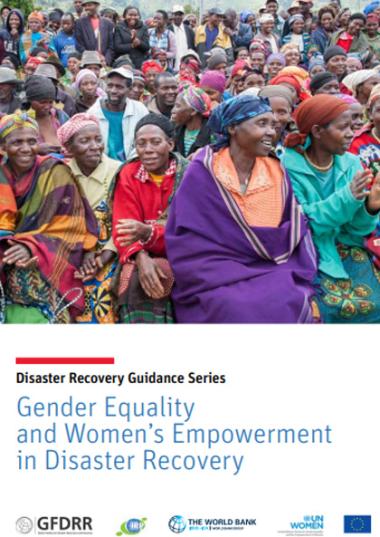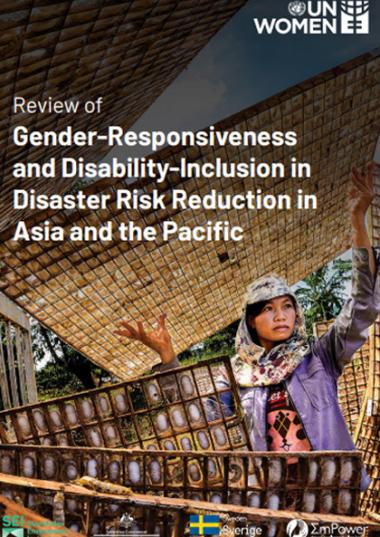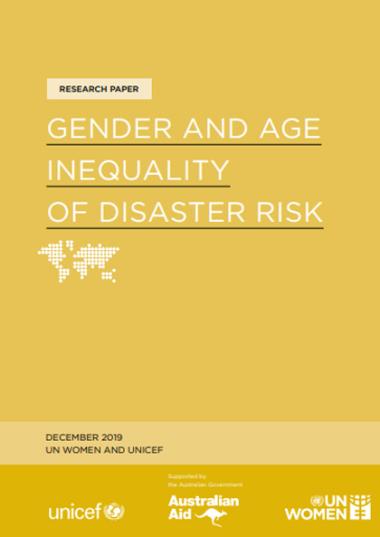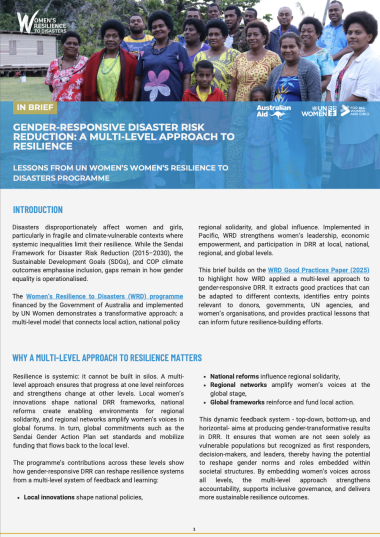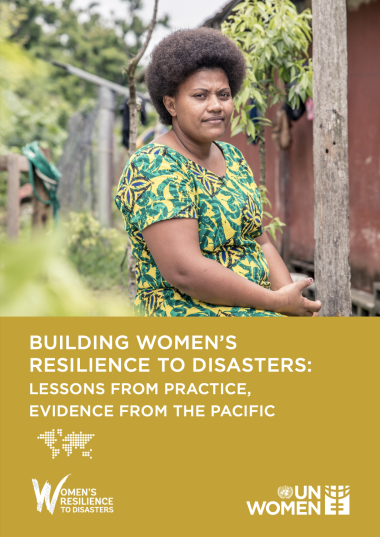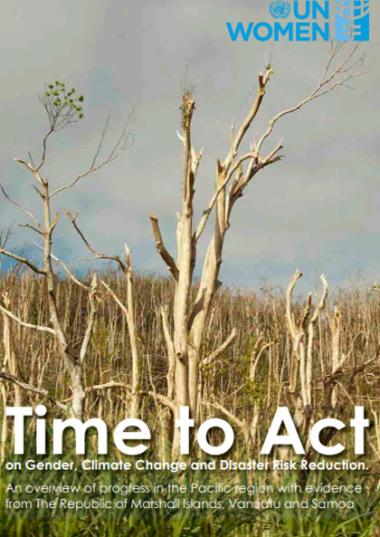
How can promoting women's participation (and agency) and responding to their needs improve disaster risk reduction?
September 2018
Case from post-disaster reconstruction (operations and measures) in the Philippines and Sri Lanka
Drawing on the cases of JICA’s and other organizations’ past and ongoing relevant projects, this report analyzes how external interventions in the Philippines and Sri Lanka in 2015 have contributed to changes in gender relations, as well as the vulnerability and coping capacity of women and men in disasters.
Findings from the research show that women’s agency was hardly addressed as a main objective of most of the projects, and women tended to be utilized as good mothers and care-takers based on stereotyped gender division of roles. Instead, some outstanding interventions to challenge the transformation of gendered division of roles have led to women’s active involvement not only in community-based disaster risk reduction (DRR) but other community activities.
For gender-responsive DRR, the most essential step to be taken might be the translation of DRR into an opportunity to transform unequal gender relations which are root causes of women’s vulnerability and exclude them from decision-making processes for DRR.
Women and other marginalized groups of people are often regarded as more vulnerable to a risk of disasters because of their limited access to resources and decision-making power, necessary for coping with disasters. However, they are not helpless victims or passive beneficiaries, but active agents for DRR, if they are evaluated from a non-gender-bias lens and given proper opportunities. In this light, it is essential for the government and external organizations to promote the agency of women and other marginalized groups of people, while reducing their risk, within relevant interventions. In reality, however, most of the relevant projects have not necessarily addressed the transformation of gender relations and concentrated on the daily-based needs of women survivors.
